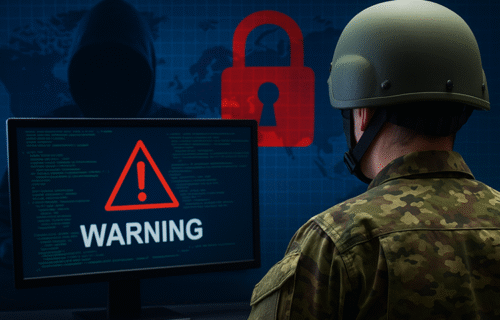The Czech Republic is stepping up its defenses in cyberspace as the country faces a growing wave of digital threats linked to Russia and other hostile actors. The country’s armed forces and national cyber agency are now working more closely to protect both military and civilian systems, reflecting how cybersecurity has become a core element of national security policy.
The commander of the Czech military’s cyber and information forces, Brigadier General Radek Haratek, said that while conventional defense has centuries of history, the digital domain is still relatively new. Over the past six years, his units have built the foundation of what is now a key branch of the army. Their mission is to protect defense networks, support operations in the information space, and strengthen communication with the public in an era when influence and disinformation campaigns are part of the battlefield.
Officials describe the unit’s work as primarily defensive, though it also maintains the capacity to respond to digital aggression if required. The main focus remains prevention—protecting systems that range from battlefield technologies to administrative networks. The army has also begun using artificial intelligence tools to help identify cyber incidents faster, though senior officers insist that human oversight remains essential.
Czech authorities say Russia remains the most active and persistent threat in cyberspace, often combining cyberattacks with online disinformation. Security experts in Prague warn that such operations are rarely dramatic events but rather long-term efforts designed to probe networks, test reactions and gradually erode public confidence. “These attacks are subtle and continuous,” one defense official said. “They look for weak points over time rather than a single decisive breach.”
The heightened vigilance follows a string of incidents across Europe in recent months. Pro-Russian groups have been linked to disruptive denial-of-service attacks against government websites and news portals, while other intrusions have targeted ministries and communication systems. Earlier this year, the Czech government also accused a China-based hacking group of attempting to infiltrate the foreign ministry’s network, underlining that Prague’s cyber risks come from more than one direction.
In response, the government approved a new National Cyber Security Strategy that will come into force in 2026. It calls for deeper coordination between the military, civilian agencies and private operators that manage critical infrastructure. The plan also outlines a broader education campaign to raise awareness of online threats and to train specialists capable of defending the country’s digital frontier.
A new cybersecurity law due to take effect in November 2025 will extend the obligations of both state bodies and private companies, bringing Czech legislation in line with European standards. It sets stricter requirements for data management, supplier oversight and rapid reporting of cyber incidents.
Experts say these developments show a shift from short-term countermeasures to long-term capacity building. “What began as a reaction to attacks has evolved into a national strategy,” said a Prague-based analyst. “The goal now is to make sure the entire ecosystem—from defense to utilities and media—can withstand constant digital pressure.”
The Czech Republic’s experience mirrors that of many Central and Eastern European nations that have found themselves on the frontline of cyber and information warfare since Russia’s invasion of Ukraine. With a new national plan, updated legislation and growing cooperation with NATO partners, Prague is positioning itself not just to defend against the next attack, but to ensure that its institutions, infrastructure and citizens can operate safely in a world where conflict increasingly begins online.
Source: Czech Armed Forces, and supporting data from CTK, NÚKIB, Eurostat and ENISA.
